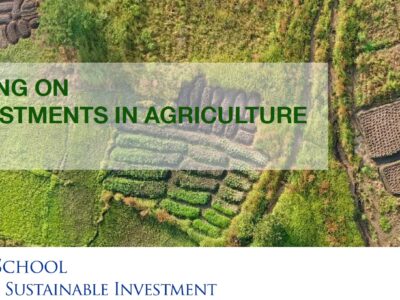Daniel Hillel, an adjunct senior scientist at Columbia University’s Earth Institute, will receive the World Food Prize this week in Des Moines, Iowa. Hillel is being honored for his pioneering work in promoting modern irrigation methods that save water, increase crop production and conserve soil in arid lands. The award ceremony and associated weeklong meetings on world hunger are being webcast at the World Food Prize website.

A native of California who has lived in Israel most of his life, Hillel started as a farmer on a commune in the highlands of the Negev desert, but also happened to have a degree in earth sciences and hydrology. He demonstrated the scientific basis for the benefits of slow, finely calibrated drop-by-drop “micro-irrigation” using plastic pipes, versus traditional periodic flooding of fields through ditches, which can waste water and damage soils. He went on to export the technology to some 30 countries across Africa, the Middle East, Latin America and Asia. “We studied the ancient ways, and tried to emulate them, and tried to improve upon them,” said Hillel. “I’m a great believer in peace and cooperation rather than rivalry and enmity. … So I’ve dedicated my life to finding appropriate ways to manage, to husband water and soil and climate, in the interest of constructive cooperation.”
Now 82, Hillel sat in his office near the Columbia campus with Earth Institute senior science writer Kevin Krajick and Voice of America agriculture correspondent Steve Baragona, to reflect upon ancient and modern farming, climate change, and his six-decade career.




Hi John, how could I learn more about that method you talk about?
What would you grow that thrives on seawater John?
I have devised a simple method of piping seawater,for the purpose of micro irrigation,even up mountains close to the shore as for instance in the Canary Islands without installing any conventional pumping equipment or Solar energy plant. Construction costs of this eco friendly system would be minimal and make and could be constructed by cheap semi-skilled labour. The plant could be relatively small, cheap and easy to construct,using basic materials, and be virtually maintenance free.